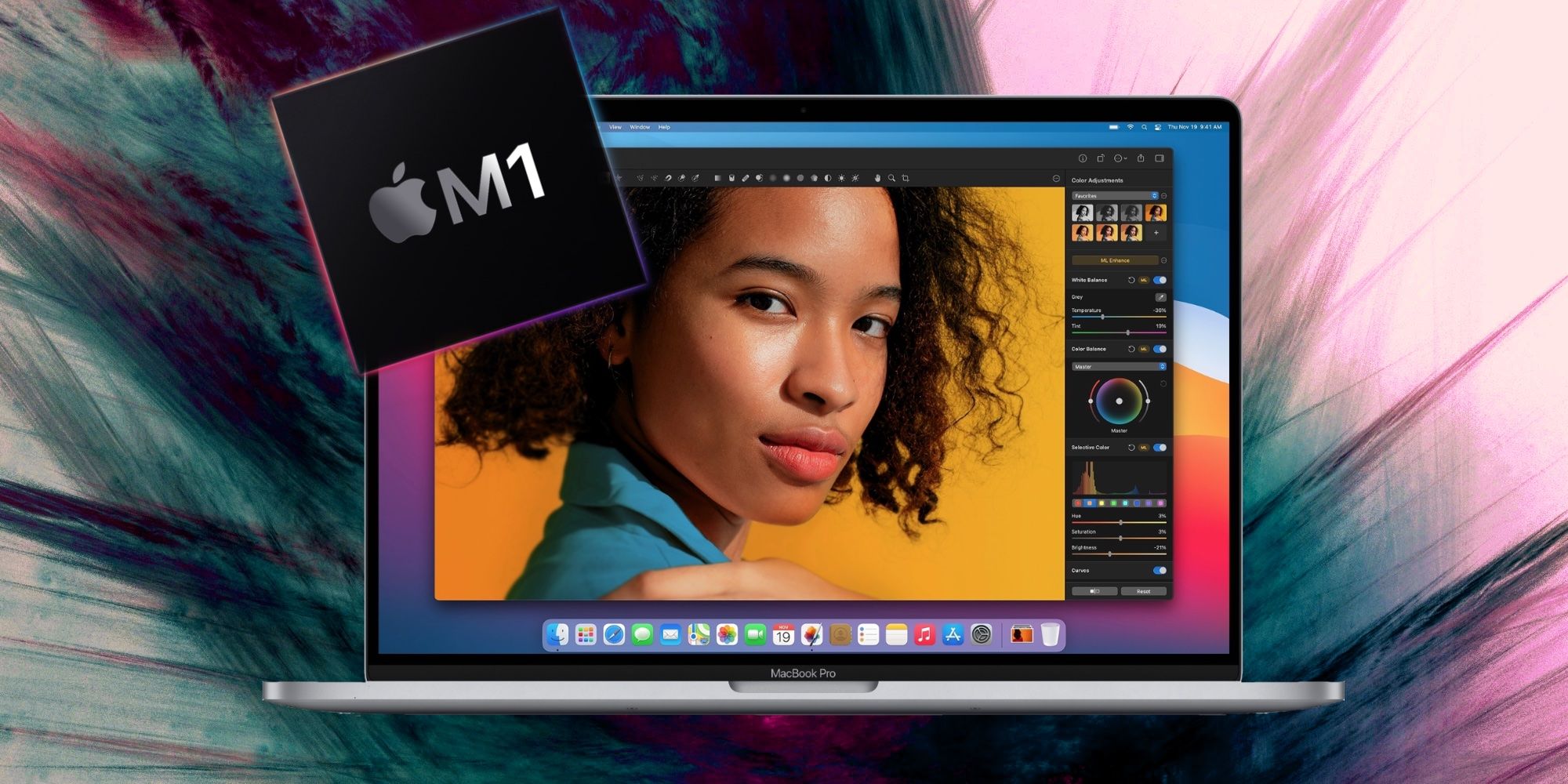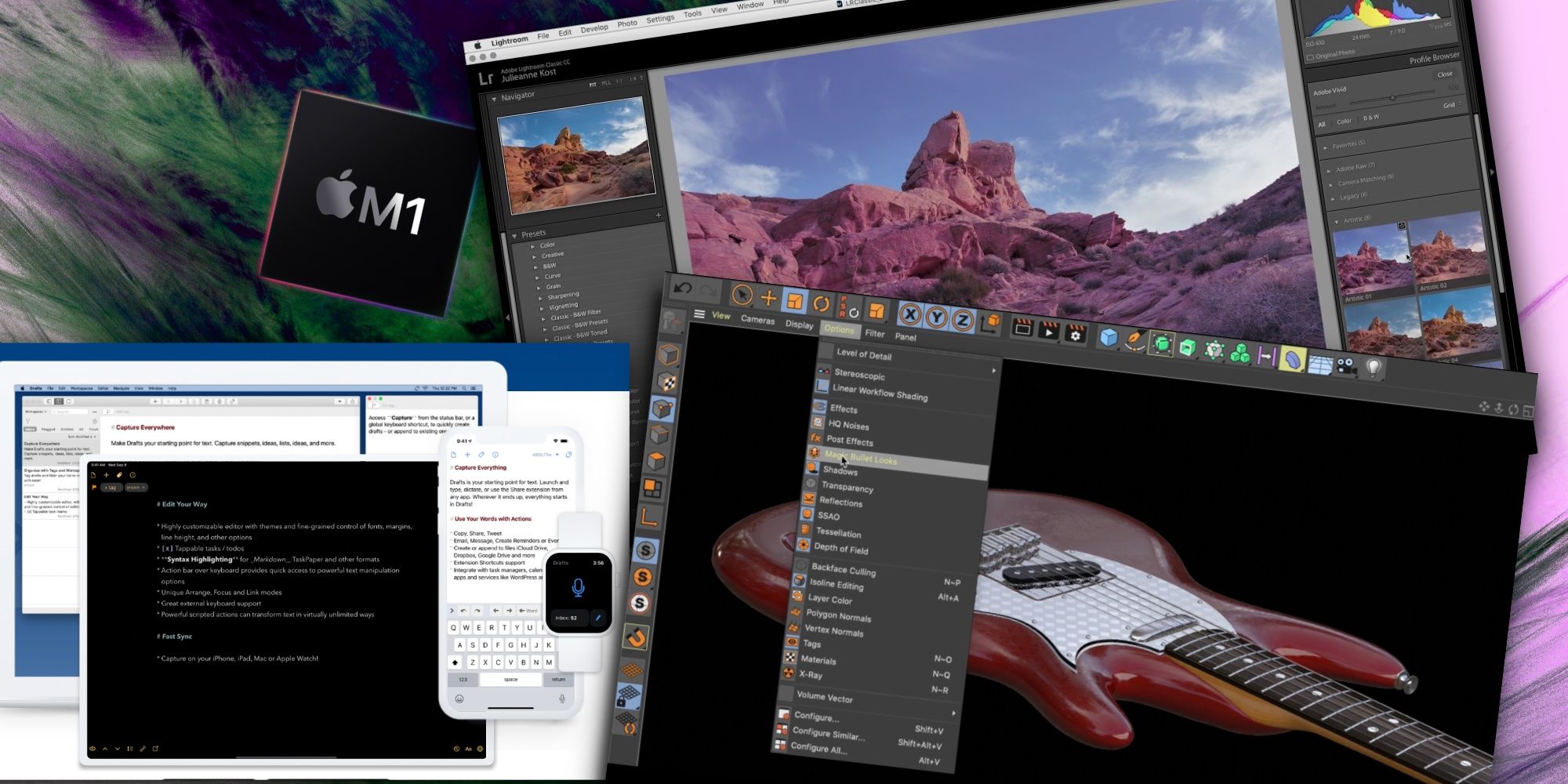Apple calls Mac apps Universal if they include native code for both its new M1 chip and the Intel CPU. Universal apps will likely be the standard for many more years until Apple Silicon Mac computers outnumber those that are based on Intel chips. App developers are rapidly converting to the new system and several popular apps are already available in a Universal installer. However, that doesn’t mean the older Intel installers need to be avoided. Apple has provided an emulator that automatically converts these older apps to a format that runs well on the new M1 Mac systems.
The emulator is called Rosetta 2 and Apple claims that some of the most graphically demanding apps, which use Apple’s graphics API Metal, actually perform better under Rosetta on the new M1 than on previous Intel Mac with integrated graphics. Other apps run well enough that the difference may not be noticeable. The bottom line is that owners of the new M1 MacBook laptops and Mac mini need not worry about whether an app is Universal or not, unless there is a need for utmost speed. This means apps that rely heavily on the CPU will benefit most from a Universal app.
There is already a long list of Universal apps available now, some available in beta testing form and many more in progress. Some of the top graphics apps that are now Universal include Pixelmator Pro, which just launched its 2.0 release with several updates, Affinity Photo and Designer, a nice alternative to Photoshop and Illustrator. All three are outright purchases, rather than the subscription-based model that Adobe uses. Cinema 4D is the first professional 3D animation tool available for the new M1 Macs. Unity 3D gaming engine has ported its player over to the M1, but the editor is still in progress. For writing and text editing, Drafts is Universal in multiple ways. The app is native for M1 Mac computers and also, developer Agile Tortoise makes versions for iPhone, iPad and even the Apple Watch. Documents are synced between devices via iCloud, so they travel with the writer wherever they go. BBEdit is another powerful Mac only text editor that’s Universal also. The Omni Group’s planning and productivity suite is now available for M1. Of course, every Apple app is optimized for the newest Mac computers.
Coming Soon & Other M1 App Options
Apple said Adobe is bringing Lightroom CC to its M1 computers in December and following it up with Photoshop in early 2021. Blackmagic DaVinci Resolve, the professional level video color-grading and editing app is available in Beta for M1 now. The Universal app for Microsoft Office is in progress, but the Beta channel version is available now. Parallels Desktop, the virtualization app demoed at the 2020 World-wide Developers Conference, allows running Linux or Windows within a container on macOS. Despite the early preview it is currently not compatible with Rosetta, though a version that works with the new Mac computers is in progress.
Speaking of Windows, a clever app called CrossOver can run many Windows apps directly on M1 Mac computers without the need for Windows. Most apps can be found in versions specific to a Mac, an iPad or iPhone, though. Apple allows most apps developed for an Intel Mac to run on the M1 with no issues and any slowdown is minimal. Most Mac apps that are not Universal will be updated in the future, providing an extra boost of speed. When searching the Mac App Store, M1 Mac owners will notice a tab that allows checking for iPad and iPhone apps also and many are compatible, so that’s another resource. Apple's M1 MacBook Air, Pro and Mac mini offer more app choices than ever before and more speed is coming as soon as developers complete the transition.
Source: Apple


